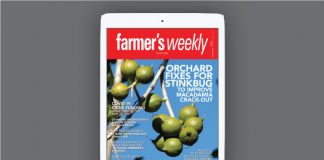Cosatu recently criticised rapidly increasing national maize prices, accusing South Africa’s grain farmers and food processing companies of looking forward to huge profits while the country’s poor struggle even more to feed themselves.
“Cosatu is outraged that maize prices have risen by 25% in SA since the beginning of June 2012 and are likely to rise even further,” said Cosatu spokesperson Patrick Craven, in a statement. “But what Cosatu objects to most is that SA maize prices are not determined by market conditions in SA, but are locked into world grain prices as fixed at the Chicago Exchange.” While the world’s maize stocks are under pressure, SA has up to 1 million tons of surplus maize, which should decrease national maize prices, said Cosatu.
Agbiz CEO Dr John Purchase said Craven had given little recognition to the significant impact the current drought in the US will have on global maize stocks. “The resultant and expected global shortage will necessarily drive up global maize prices,” said Purchase. “This in turn will stimulate production, also in SA, in order to meet the ever-increasing global demand.”
Once stock levels rise again and supply outstrips demand, prices will come down, he said. “Since SA has a globally competitive maize industry, exporting 2 million to 3 million tons annually, maize prices generally track the export parity price, which is below the international price, and so consumers benefit directly from SA’s competitive maize industry.”
Chris van Zyl, assistant general manager for policy issues with TAU SA, said SA’s maize farmers are price-takers in the value chain. He said that maize farming profitability is also affected by unforeseen economic and meteorological events.
In his statement, Craven described the price calculating mechanisms and processes for SA’s maize and other staple grains as “monopoly capitalism at its worst”.
He said that Cosatu “demands that the Competition Commission investigates all cases of import parity pricing, including the latest maize price increases, and if this is not already illegal, urges the government to legislate to ban the practice”. Commodity representative organisation Grain SA said that it intended arranging a meeting with Cosatu to discuss the matter privately.











